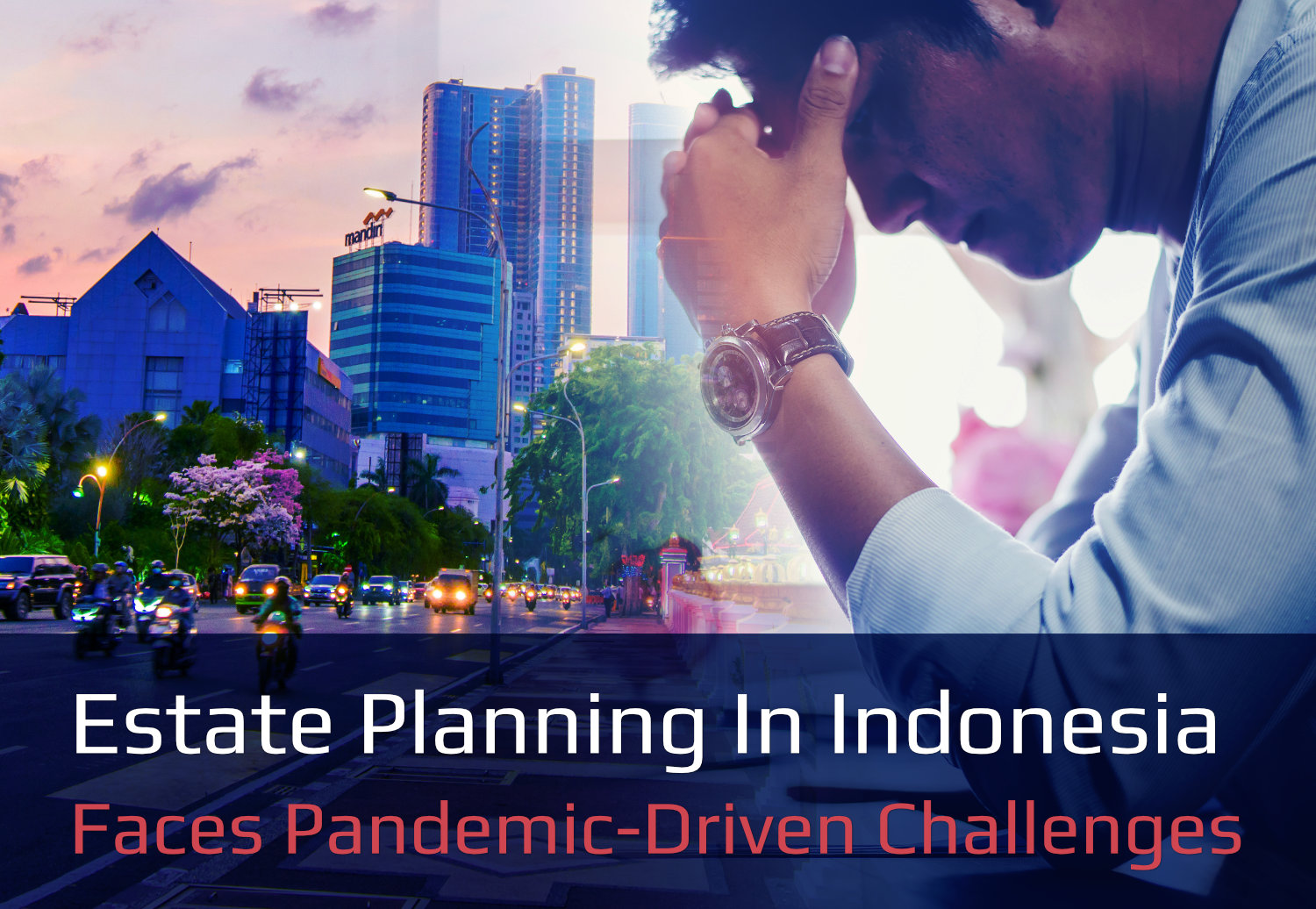The restrictive Covid-19 pandemic policies have created bottlenecks in administration processes that facilitate the distribution of assets to loved ones, say Henra Sensei and Tri Djoko Santoso of LN Consulting
The impact of the Covid-19 pandemic has been significant on the estate planning landscape in Indonesia. With 5,539,394 Indonesians infected, resulting in the deaths of 148,073 people (source: worldodometers February 28, 2022)and the numbers still rising, there have been numerous cases in Indonesian parents passing away and leaving their children behind, children dying and leaving their parents behind, as well as whole families dying.
Estate planners have had their work cut out for them as many Indonesians are typically negligent about writing their Wills. This means their loved ones cannot easily track their assets when they die. It is often the case that a bereaved family does not even know that the deceased parent had a life insurance policy or a Will, or where these Wills and life insurance policies are kept.
Matters are complicated for some Indonesian families who have assets or life insurance policies outside Indonesia. Loved ones of the deceased have to find the supporting documents, and if they are minors, there may not be any guardianship plan in place to get the ball rolling.
Bottlenecks in administrative processes
The lockdown policies and other pandemic restrictions across the country that were implemented during the pandemic have had a serious impact on public services, organized by both government offices and private entities in Indonesia. They cannot operate as per normal, causing delays in the issuance of death certificates and other administrative documents such as certificates of heirs.
Most of the time this process requires a district court or an Islamic religious court to be involved. However, trial schedules are frequently seeing postponements, which results in court decisions potentially taking longer. This includes courts’ involvement in determining who are the guardians of minors, or who are adults with legal disabilities.
This process is key as it generates legal documents and court decisions that are the main gateway to carrying out the next stages of the administration process when someone dies. A common occurrence is insurance beneficiaries who are minors failing to complete supporting documents that expedite insurance claims because there are delays in the appointment of a guardian.
Meanwhile, the claims process can also be delayed as the pandemic restrictions have forced some insurers to reduce their employee numbers and service hours to provide insurance claim services. In addition, the pandemic restrictions and uncertainties on individuals state of health have also affected the communication channels between notaries, financial planners and life insurance agents, and clients.
What lessons can we take from the pandemic?
The delays in the administration of important documents that expedite the distribution of assets to a deceased person’s loved ones have serious implications. This is typically exacerbated when heirs are unable to present written evidence, which is the main requirement. In such cases, it is difficult to estimate the duration of the process.
Against this backdrop, a comprehensive estate plan and a proper life insurance policy should be able to reduce the impact of administrative delays and help the distribution of assets to bereaved families. Liquidity planning is a must using various forms of liquid instruments, such as cash or near cash. Indonesian families must strive to have detailed records of their assets and debts that must be maintained for validity and accuracy.
We recommend that individuals write their Wills with us, clearly stating who the Executors of their will should be, and who should be the guardian of minors or those with special needs, including adults with dementia. The best option is to contact a notary in Indonesia. Or if your situation is not complicated, you may make your own Will (Olographis testamen). However, it must be submitted to a notary for legal storage purposes.
People also need to ensure that they keep up-to-date records about the professionals involved who their loved ones can contact in the event of their death — for example, notaries and lawyers, tax consultants, financial planners, and insurance agents both in Indonesia and overseas, wherever the assets are domiciled.
Many Indonesians have made efforts to diversify and allocate their global wealth for financial and family security. If they already have life insurance coverage somewhere overseas, they should also ensure that they have life insurance coverage in Indonesia. After a person dies, this will help loved ones to have easy access to liquidity, both in Indonesia and abroad. There should always be a Plan A or Plan B, as well as an entry and exit strategy in this risky life.
If you are a financial practitioner in Indonesia, we recommend you take the AEPP® course in Indonesia. Gaining global knowledge will help you in totally serving your clients in Indonesia. Henra Sensei, CFP®, AEPP® and Tri Djoko Santoso, CFP®, AEPP® are financial educators and are both facilitators of AEPP® courses in Indonesia.
The above article first appeared on EPPL’s The Custodian, Issue 21.
#Wills #Estate Planning

Henra Sensei, CFP®, AEPP®

Tri Djoko Santoso, CFP®, AEPP®
Founder, LN Consulting














